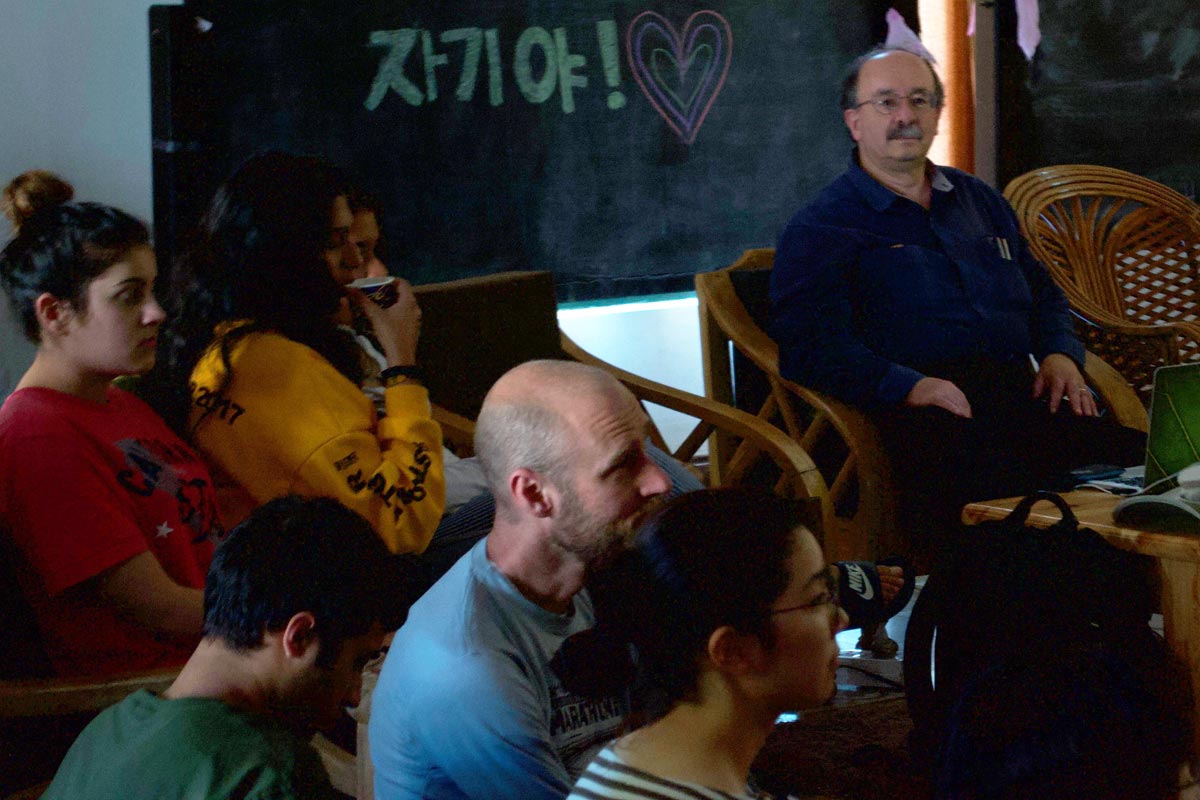
25 Apr Power to change the world
On Sunday, April 15, the Centre for Imagination hosted renowned environmental engineer, physicist, and co-founder of the Rocky Mountain Institute (RMI) Amory Lovins. Lovins has led a 40-year career in the environmental industry, both as a consultant for profitable innovations but also in the public sector as a soft energy analyst for the U.S. Government, as well as an amicus curiae for 19 heads of state. RMI was the first and still one of few private organisations devoted to research, publication, consulting, and engineering in the field of sustainability. More recently it has nuanced its focus to profitable innovations for energy and resource efficiency.
“The transformation we propel is not constrained by the incumbents’ inertias but sped by the insurgents’ ambitions. Market-driven, business-led, we keep change going even faster inside that outside, turning the energy future we need into one we can achieve.” Amory Lovins.
During the discussion, Mr. Lovins focused on the concepts surrounding creative innovation; ways in which we can redesign existing buildings, products, and services to be more sustainable and efficient. His philosophy behind this is rooted in the the idea that a product or system can become for productive and sustainable if the components of such product or system are made to serve more than one purpose.
“…to harvest energy not from the fire of hell but from the light and air of heaven.”
Lovins also provided his take on education and how the young people of today should approach solving the challenges that face them. He explained the key to this is approaching problem solving differently. He highlighted that rather than “chop problems into little pieces”, we should expand the boundaries of a problem, look at all the possible solutions and synergies; and then only focus in when you have been able to derive exactly what the solution requires.
“Knowledge has no boundaries, it is only split into disciplines due to academic tribalism, but it really isn’t like that at all.”
Amory went on to explain that academia has become too divided, and students are pressured to pick a specific area of study, and early on. Lovin is a dropout of both Harvard and Oxford, reluctant to pick a major, however he studied a multitude of disciplines; everything from physics to music to photography and law. He stressed that much of his success can be traced to his multidisciplinary expertise, which allowed him to approach projects and problems from a variety of different angles. He stressed to students not to feel that they need to fit into a box, or enter a field or profession because of their background or skills.
“We have too many narrow specialists in the world- that’s why we’re in this mess. Specialisation and detailed, in depth knowledge are valuable, but they really get you in trouble if you don’t have vision across boundaries.”
After his talk, Lovins spent about an hour speaking with inspired students and answering questions. You can read student Rohan’s ’19, article on the talk on The Woodstocker, our student publication.
Lovins and the RMI are working to establish an office in N0rth India in order to improve local energy infrastructure through economically and environmentally sustainable measures.
Tomas Forman, Intern, Centre for Imagination
The Centre for Imagination is working to transform learning at Woodstock School and be a reference point for progressive education the world over. Find out more about the Centre for Imagination.
www.woodstock.ac.in/imagination






No Comments